Mantabuan: A Surreal Journey
So once again we awoke at Scuba Junkie in a different room. Of course, there was no room for us again that night, but we were fed up with all this switching of rooms, all these false positives, and decided perhaps it would be better to just stay the night at another hotel. That would be a challenge for the evening, so we slumped our belongings underneath the stairs once again and headed out to meet with Hassan. We found his weathered face grinning and beckoning to us from the across the street, where we followed him to a local Chinese restaurant.
He had placed three orders of fried rice for us. According to the menu at the restaurant the cost of these rice dishes was about 9% of what we had paid him for the island lunch, and you, dear reader, had better believe that we were keeping track. We sat down with him and drank sweet creamy coffee while David attempted to engage him about his life’s story. It was here that we first me with one of Hassan’s communication issues. He answered most requests in very quick and bursts of murmur, with either “yes†or “no†and followed, if we were lucky, by a one-to-five-word qualifying phrase.
Do people live on this island we’re going to?
“Yes”
About how many people live there?
“Not Many”
David was able to glean that Hassan had entered the Borneo boat tour industry in the mid 1980s just as this place was becoming a tourist destination. He had learning English from his guests; it seemed he catered largely to Italians, though why we could not be sure, or how exactly he used the word “Italy”. Â Maybe this was his word for Europe? He certainly did not speak any Italian.
He told the shop in Malay, to put his coffee on our tab. Asked us to pay the bill, and then asked us to pay him in advance for the day’s adventures, reportedly so that he could purchase fuel for his boat. This we did, and with some mounting worry about the value we would receive in exchange for them, handed over our hard-earned Ringgit.  At least we knew we had a sumptuous feast of barbecued fish waiting for us on the island.
We walked with Hassan to the dock, and he signaled to a man, who was puttering offshore in his wooden boat. Hassan’s driver rammed his way into the cluster of boats that all struggled to use the tiny strip of wooden dock, until he made it close enough that we could hop on. Then, with a grin, Hassan, carrying all the money we’d just given him, disappeared into the crowd. His man turned the engine back on and backed away from the dock out into the murky and trash-filled water.
We certainly outnumbered them, and had grown quite strong over the last few months of daily wheeling. So long as he did not carry a deadly weapon, there was every chance that team AsiaWheeling would prevail in a physical struggle. So with this, we released our fates into this stranger’s hands, and to the great chagrin of all passers by in this overcrowded fishing port, we began to apply sunscreen.
Eventually Hassan returned with what David estimated to be four to eight times the amount of fuel required for the day’s journey. And we helped to steady the boat, as Hassan loaded some 50 gallons of petrol on board and then we were off.
The water quickly turned from oily gray to deep blue, and the fresh sea air invigorated us. We soared over the water, the wooden hull of our boat slamming violently against the surf, stopping only to remove the occasional plastic bag from the rotors, but mostly just soaring.We all began to relax, and grin as we sped by communities sprung up on stilts over shallow sections of water, and glorious islands, sporting just a few palm trees and a single hut.
Soon we made our way into a protected area of very shallow water between two larger islands. Here it was so shallow that Hassan climbed forward to the bow of the boat, where he sat, peering into the sea, and directing his driver as to avoid large outcrops of coral and rock.
We crawled through this section, and with the engine only quietly chugging, we were able to easily hear the sounds of life coming from the islands. Large flocks of birds, and millions of chirping insects sang in the distance. Steep cliffs and thick jungle backed tangled mangrove swamps, which came down to meet the sea. We saw little sign of habitation inland, but off shore, we saw a small villages on stilts, connected by walkways made of wooden planking.
Then we were through the opening between the two islands, and flying over the chop again. Straight ahead was Mantabuan, and, dear reader, it was a paradise, a small white sand island sprinkled with coconut palms, surrounded by a large shallow reef. We powered our way through a section of churning current, where water from the protected interior of the shallows poured out into the sea, and then Hassan’s man ran the wooden boat aground, under the shade of a gnarled mangrove.
Hassan began to remove his pants, and shoes, then slipped into a pair of nylon track pants. “Town Pant,” he explained gesturing to the thick blue corduroy trousers he has just shed. “Island Pant,” he proudly referred to his black track pants.
“First we must visit the police,” Hassan explained. So we followed him up the beach. “No need for shoes on this island,” Hassan added. He was wearing a pair of dark blue wool socks, which were encrusted now with sand. He noticed me eying them and grinned. “No need for shoes!” he reiterated. Out of pure laziness, I left my shoes on, but Scott and David dutifully removed theirs, but instantly were forced to turn back by the razor-sharp grass that sliced into their bare feet. Hassan waited patiently while they tended to their wounds and re-applied footwear.
The police, it turned out, were not on the island today. Good news, Hassan explained, because the island was a marine park. And with the police gone, we would be able to fish. We were uncomfortable about fishing in the Marine Park, but Hassan assured us that he would be happy to do so himself, or to simply buy fish from the locals. We decided we would be happy with the fish lunch and looked forward to drinking from the abundance of coconuts that Hassan also had assured us would be available. “We must go talk to the army now,” Hassan reported, and we continued to follow him around the island. Soon, we were staring at a net of razor wire, behind which there was a Malaysian infantryman in full camo, crouched in a little concrete hut piled with sand bags and peering out over the water. A large mounted machine gun sat by his side.
“Salaam aleikum,” Hassan announced, but the soldier did not stir. He cleared his throat and crunched his way off the grass and onto the gravel walk which lead to what we could now see was a very large military base snuggled into the island foliage. The soldier lazily turned around. Hassan and the man began to talk in Malay. Soon a number of other soldiers appeared, and we entered the base. Most had large smiles on their faces, and Hassan began to mime a signature at them, at which the smiles became larger, and the group of soldiers began to laugh and shake their heads.
Scott, David and I decided now would be as good a time as any to introduce ourselves, so we shook hands around the circle. The soldiers spoke reasonably good English and were happy to chat. It turns out they were posted on this island in direct response to the occurrence of a dive boat being been kidnapped in 2001 by Philippine pirates of the Sulu Seas. So, in essence, they were here to protect us. The base was substantial, with a few buildings, some trucks, a couple of machine guns, plenty of razor wire, satellite Internet, playstation and X-box gaming consoles, a badminton net, and plenty of bizarre hand crafts which spoke volumes about the boredom of the soldiers.  We commended a wind-driven pinwheel that had been fashioned to look like an airplane with a rotating propeller.  “Maybe if you spend three months here,” they chuckled, “you can make something better!”
We spent the rest of that afternoon snorkeling in the surrounding reef, which was rich with life, and sported some very strange currents and temperature changes. We swam into the current, though jets of bathwater, and dove down a meter or two into frigid water to investigate schools of brightly colored fish gathered around coral and sponge.
We were returning to the beach when a large military boat arrived, filled with the next crop of 20 soldiers that would be spending three months on the island protecting visiting tourists.
The men struggled to beach the boat on an outcrop of coral as we watched from the water, hoping that our presence would not cause too much embarrassment among the new soldiers. They, however, appeared just as chagrined about the affair as we were, and flashed bright white smiles once they had finally run aground enough to throw down an anchor made from a piece of corral slathered in concrete.
We came back to the beach quite hungry, and Hassan greeted us with the $1 dollar rice dishes that he had bought.
“What about the local fish lunch?” we asked eagerly. Â Of course, we thought, this must also be at the top of his mind. Â “Maybe 2:00 pm, when fishermen back. Right now no fish.” Â Hassan hailed a fisherman in a dugout canoe by shouting “Come I give you money” across the water after we continued to inquire.

The man had caught two  beautiful fish that morning, but according to Hassan was asking outrageous prices citing the fact the fish were still alive.  And of course, Hassan noted that this would be something well above the threshold for the included lunch, and that his footing the bill was totally out of the question.
Defeated and suspicious, we dug into the rice, which was, to Hassan’s marginal credit, not bad. We then embarked on a tour of the island, which turned out to be easily circumnavigated, and only about twice as large as a baseball diamond. We then settled into the shade of the mangroves for a nap.
David awoke to Hassan’s voice, “I am feel very sick.” He then cracked open one of the bottles of water that we had brought with us, and drank deeply. “Do you want some clams?” A strange request, but “yes” David replied, we wanted some clams. Hassan then wandered away for a while, returning with a bowl of freshly harvested and opened raw clams.
He removed a rusty box cutter from somewhere in his island pant, and sliced open a nearby lemon. He rinsed the clams with some more of our water and then squeezed both halves of the lemon on top. We ate the clams with some ambiguous sweetbreads that Hassan had also produced from the island pants. They were quite good, but were also an indicator to begin worrying whether or not the island fish lunch would occur.
We asked Hassan if there was any fish, and he paused for a moment. “No.” he replied. “Coconuts, then perhaps?” He paused again in what was quickly becoming his signature delivery, “No.” “Why is this?” David asked. “The men have been fishing all day and they are too tired to gather any coconuts” Fair enough. “But what did they catch?” “No,” was the only reply.
Somewhat frustrated, we wandered over to the small village, where we found the locals to be cooking vast pots of fish.Hassan appeared after some time, and began haggling with a local woman over a number of small dried squid. All over the island, we had seen squid and octopus, drying in the sun, covered with flies.
Hassan finally tired of his bargaining and selected a single squid, for which we witnessed no payment change hands, and began to busy himself making a small fire with scraps and coconut husks. He than grabbed a large wok-like bowl, and placed the squid inside.
Tiring of waiting for the wok to heat up, he removed the thing and finally, just threw the squid into the fire. The squid was not quite dry enough to fully ignite, and in frustration the fire extinguished itself.
Hassan grabbed the squid, burning his fingers a bit, and then announced “We go back to the boat now to relax.” We nibbled some bits of the squid with Hassan as we wandered back to the boat, but still uncomfortable about the lack of fish lunch we soon made our way back into the village.
We spoke for a while with the military fellow, who explained to us that the town there was actually just one family – a single fisherman with many wives, and even more children. They attributed his great manliness to the consumption of a local brew made from some type of rigid sea life boiled in water.We refused the opportunity to try some, but did secretly speculate about whether or not some of the local military were not also to blame for the proliferation of children on Mantabuan. The military, it seemed, took pity on us, and though they were no more able than Hassan to produce a fish lunch (it would by this time have been more of a fish dinner), a few of them wandered off into the jungle to find us a couple of oldish coconuts that had fallen from the trees.
After Hassan had chopped them with visible experience, we enjoyed them thoroughly, trying to squeeze every last bit of joy out of our 100 Ringgit lunch.
We gladly accepted these, and drank deeply. The meat, however, proved almost too brittle to eat, and we soon grew sore in the jaw, and ready to head home.
As we pounded our way back across the waves, a kind of strange satisfaction overcame us. It was no doubt one of the strangest days AsiaWheeling had yet experience, but fascinating in the extreme. Who was this man Hassan who had just charged us for an extravagant fish lunch, and pulled a bait and switch supplying some tiny portions of fried rice, and an old burned squid? What was this polygamous military base paradise on which we had spent the day? Was this really the doom of those tourists who dared to travel without bicycles? Regardless, it was an important data-point in our study of the extremes of experience, and as the sun set over the stilted shelters of the Sea Gypsies and we pounded our way through the surf, AsiaWheeling adjourned for the day content in our ability to get lost even without a bicycle.
Loading image
Click anywhere to cancel
Image unavailable




















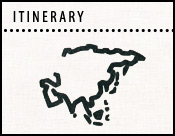

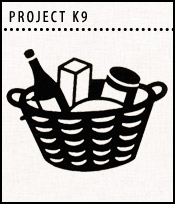
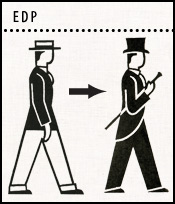

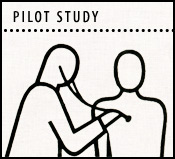
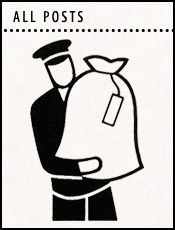





Comments
What a thoroughly bizarre story! And this was the experience “Italy” raved about!?
@ Mark/Dad
Who knows… Maybe he was just delirious with sunstroke or intestinal pains and placating Hassan in hopes of more swiftly getting back to Italy… Or maybe he really had a great locally cooked fish lunch. It will remain one of the great mysteries of AsiaWheeling.